ISPs Continue to Cite Major Questions Doctrine in Net Neutrality Challenge
Sixth Circuit judges have so far been receptive to the argument.
Jake Neenan

WASHINGTON, August 13, 2024 – The broadband providers continued yesterday to lean on the major questions doctrine in their legal effort to strike down the Federal Communications Commission’s net neutrality rules. Sixth Circuit judges have already signaled they’re sympathetic to that line of argument.
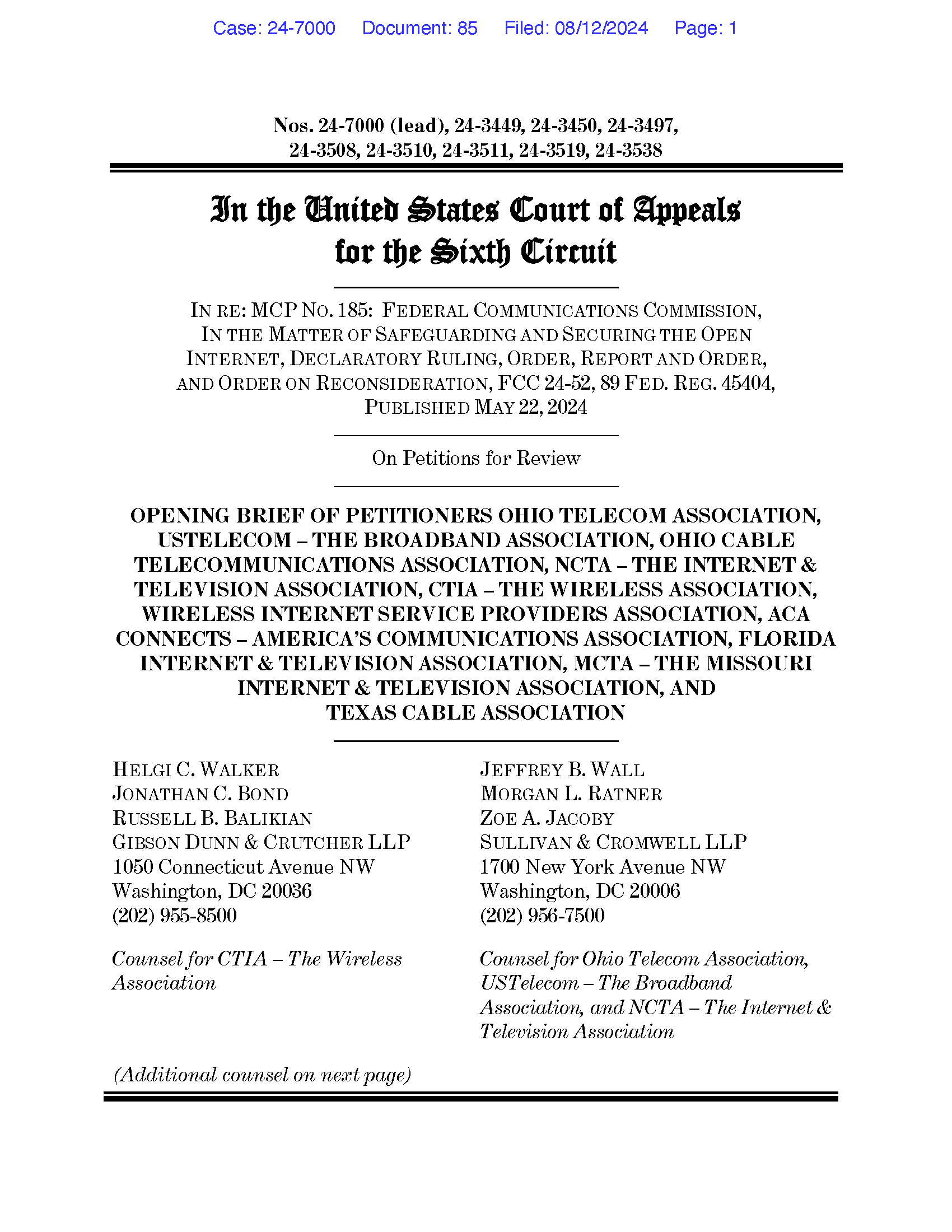
Opening Brief of Petitioners Ohio Telecom Association
“Subjecting broadband to public-utility-style regulation under Title II [of the Communications Act] is a quintessential major question,” broadband industry groups wrote in a brief filed late last night. “The Commission claims authority of ‘vast economic and political significance’ — the power to regulate ‘virtually every aspect’ of one of the nation’s largest and most essential industries.”
Net neutrality rules, which open ISPs to more oversight from the FCC, were first instituted in 2015 under the Obama administration, only to be repealed in 2017 by the Trump FCC. The agency moved to reinstate the rules in April.
The Sixth Circuit has already signaled it could be receptive to the ISPs’ major questions argument. The court put net neutrality rules on hold earlier this month, writing: “The petitioners are likely to succeed on the merits because the final rule implicates a major question, and the FCC has failed to satisfy the high bar for imposing such regulations.”
The Supreme Court broadened the major questions doctrine in a 2022 decision that said federal agencies could not take action on issues of “vast economic and political significance” without explicit instruction from Congress. It was part of a string of rulings that reined in agency authority, including a pair of June decisions that ended Chevron deference,the practice of deferring to agency interpretations of ambiguous laws, and made it more difficult for agencies to enforce civil penalties.
In arguing against the judicial stay, the FCC said major questions did not apply, both because the ISP claims of economic and political impact were “exaggerated” and because the agency has classified services under the Communications Act before. A past Supreme Court case upholding that classification authority rested on Chevron, but the agency argued that case was still binding precedent unless it was directly overturned.
A brief from the FCC is due to the Sixth Circuit on September 11. Oral arguments in the case are slated for late October.


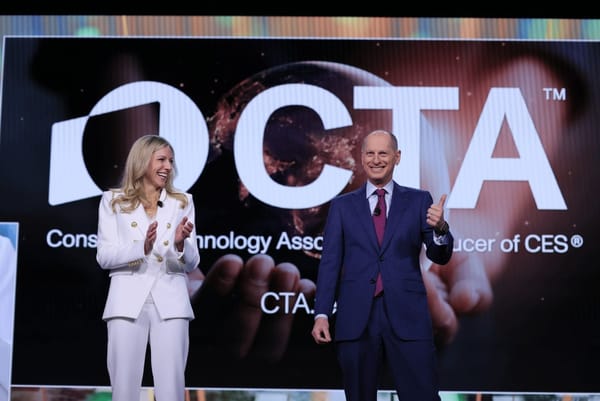


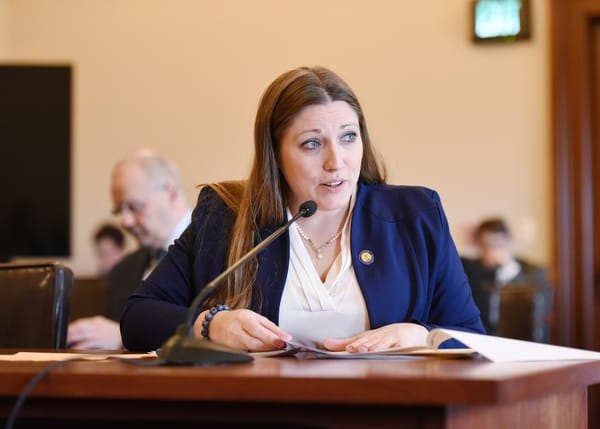
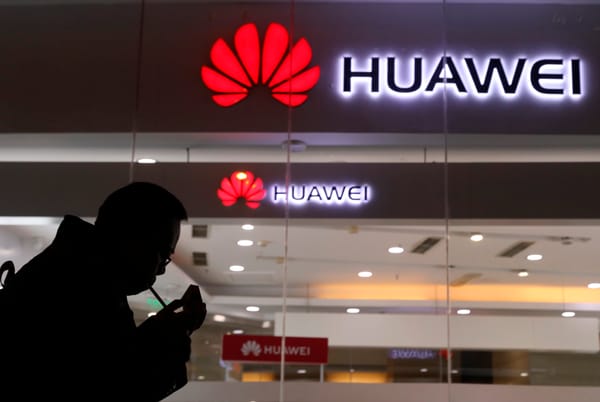



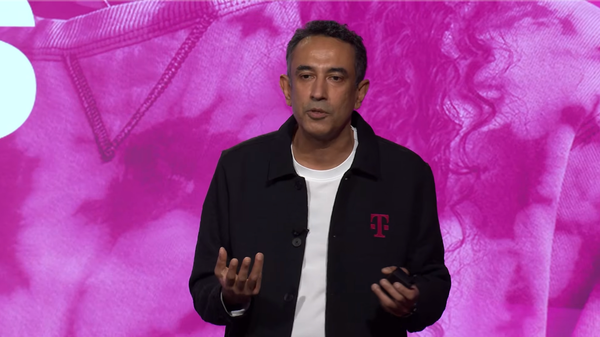
Member discussion